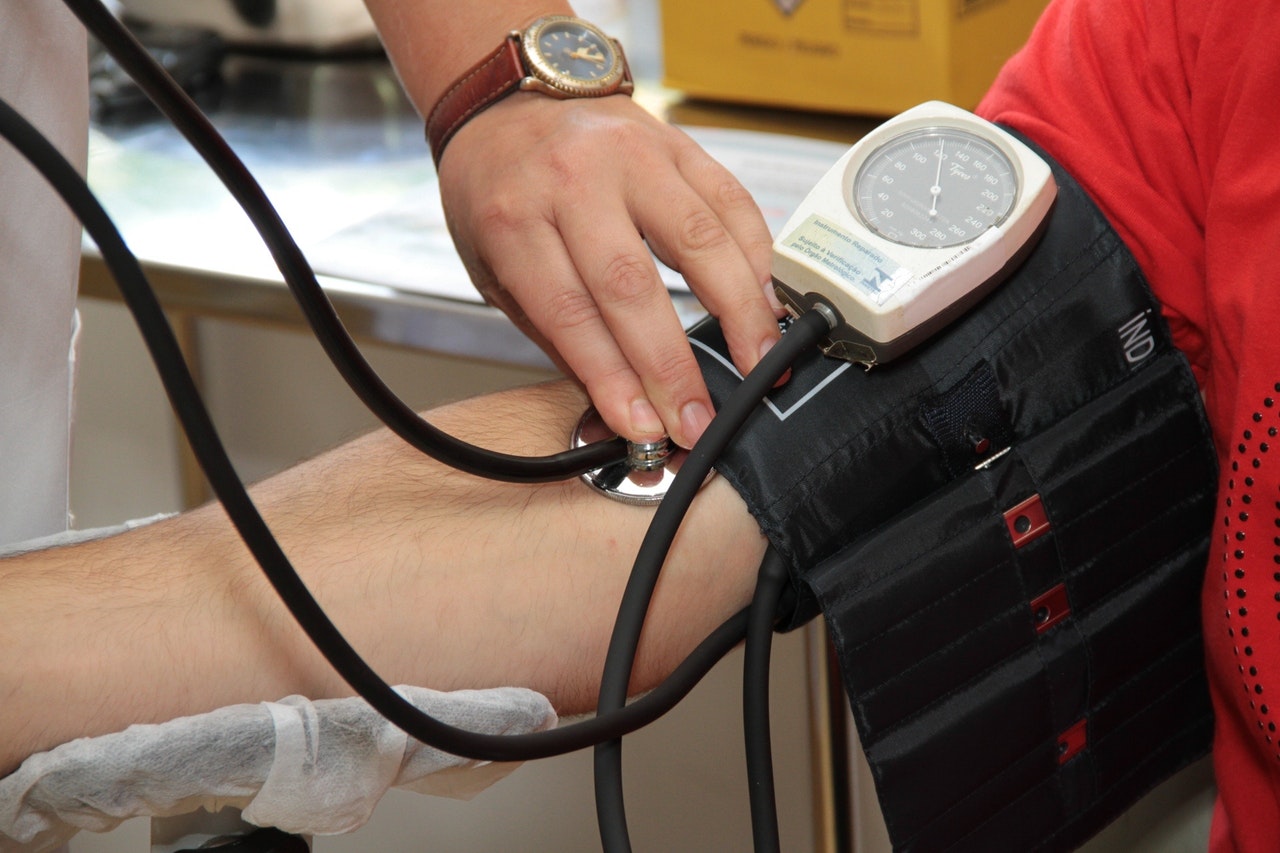Ano ang mga kailangan mong malaman tungkol sa Polycystic Ovarian Syndrome?
- Ano ang Polycystic Ovarian Syndrome (PCOS)?
- Ano ang mga sanhi ng PCOS?
- Ano ang sintomas ng PCOS?
- Mga tests para malaman kung meron kang PCOS.
- Gamot sa PCOS: Is there a cure?
Polycystic Ovarian Syndrome is a serious condition that affects the hormonal, metabolic, and psychosocial states of a woman. Naaapektuhan ng Polycystic Ovarian Syndrome (PCOS) ang 5-10% ng mga kababaihan sa buong mundo. It is one of the leading causes of infertility and hormonal imbalance in women. Ang madalas na komplikasyong dulot ng PCOS ay problema sa pagbubuntis, komplikasyon sa puso, at diabetes. PCOS medicines can only decrease its symptoms, but not completely alleviate it.
Despite its prevalence, people don’t really know much about PCOS. However, if you or someone close to you is experiencing PCOS, there are some things that you might want to note to have an easier time living with the condition.
Ito ang mga kailangan mong malaman tungkol sa Polycystic Ovarian Syndrome.
Ano ang Polycystic Ovarian Syndrome (PCOS)?

Ang Polycystic Ovarian Syndrome or PCOS ay isang hormonal imbalance na nagiging sanhi ng pag-malfunction ng reproductive system ng mga babae na nasa kanilang reproductive age. Pwede itong maging sanhi ng overproduction ng male hormone na androgen, infertility, at irregular menstruation. Pwede ka rin magkaroon ng mga cyst sa iyong mga ovaries na maaaring lumaki at kakailanganing tanggalin.
Sanhi ng PCOS: What causes it?
Women with PCOS often have a difficult time during the fertilization process of their eggs. Their bodies either cannot develop the egg to its full term or their ovaries may not release the developed egg to the fallopian tube during the menstrual cycle.
Hindi pa tiyak ng mga doktor kung ano talaga ang sanhi ng PCOS. Subalit isa sa mga obserbasyon nila ay ang pattern sa mga babaeng nagpapakita ng mga sintomas. Ang isang pangkaraniwang sanhi na nakikita nila ay ang genetics ng isang tao. Kung meron kang kamag-anak na babae na may PCOS, mas mataas ang tiyansa na meron ka rin nito.
Maliban pa sa genetics ng isang tao, ang mga sumusunod ay madalas ring nagiging sanhi ng PCOS sa kababaihan:
- Insulin Resistance
Ayon sa mga pag-aaral, karamihan sa mga babae na nakakaranas ng polycystic ovarian syndrome ay may insulin resistance. Ibig sabihin nito ang mga cells sa katawan ng taong may PCOS ay hindi magamit ng tama. Because the person is insulin resistant, the body sends signals to the pancreas to make more insulin. This excess insulin triggers the production of androgen. - Inflammation
Women who suffer from PCOS usually have elevated levels of inflammation in their bodies. This is especially true for those who are overweight or obese, making women with these conditions more susceptible to PCOS.
Ano ang mga sintomas ng PCOS?

Signs of PCOS can be observed both internally and externally. Narito ang ilang karaniwang sintomas ng PCOS sa mga babae. Kung napapansin mo ang mga sumusunod na sintomas na ito sa iyong katawan, kumonsulta sa isang propesyonal na obstetrician-gynecologist o OB-GYN.
- Obesity and weight gain
- Tigyawat or acne (located on the face, upper chest, back): because of the increase in male hormones, the skin produces more oil and make women experiencing PCOS more prone for breakouts
- Period Irregularities: isa ito sa mga karaniwang sintomas ng PCOS sa mga babae dahil sa kawalan ng regular ovulation, bukod pa rito isa sa mga sintomas na maari pang maranasan ay heavy bleeding dahil sa mga period irregularities
- Excessive Hair Growth: also known as hirsutism, women with PCOS tend to grow hair on the areas where men get hair (specifically, on the back, belly, and chest areas) which is a result of the increase in androgen
- Darkening of skin (neck, groin, and the area under the breasts)
- Diabetes
- Migraines at madalas na pagsakit ng ulo
- Male Pattern Baldness: women who have PCOS experience hair thinning and balding because of the increase in male hormones, some characteristics and conditions common in males may manifest in women experiencing PCOS
- Multicystic Ovaries
Mga test para malaman kung meron kang PCOS
Kung ikaw ay nakakaranas ng mga sintomas na nabanggit, maaring ikaw ay may PCOS. Para makasiguro, tanungin ang iyong doktor kung ano ang mga test na pwede mong gawin. Merong mga test na tinitignan ang iyong pisikal na mga katangian para suriin kung mayroon kang ipinapakitang sintomas. Bukod dito, ito ang iba’t ibang mga test na pwede mong kunin:
- Physical Exam: measures BMI (body mass index), blood pressure, looks out for extra hair, neck darkening, or enlarged thyroid.
- Pelvic Exam: checks to see if you display symptoms of excessive androgens such as large clitoris or swollen ovaries.
- Pelvic Ultrasound: checks the ovaries for cysts with an ultrasound machine
- Blood Tests: checks levels of testosterone, androgen, cholesterol, and insulin
Gamot sa PCOS: Is there a cure?

Unfortunately, Polycystic Ovarian Syndrome cannot be solved by simply taking medicine. As of the moment, there is no cure for PCOS, but, there are ways to reduce the symptoms and prevent it from getting worse.
Lifestyle change
Mahirap para sa mga babaeng may PCOS na magbawas ng timbang. Ngunit nakakatulong ang pagpapapayat sa pagbalik sa normal na hormonal balance ang iyong katawan. Maghanap ng oras para mag-exercise at kumain ng balanseng diet upang makamit ang malusog na timbang.
Medication
There are certain kinds of medicine that could help with PCOS symptoms. Maaaring makatulong ang mga ito na bawasan ang mga sintomas ng PCOS tulad ng excess hair growth, overproduction of androgen, at problema sa pagbubuntis. Some of these kinds of medication can even treat diabetes including supplements that include mangosteen.
Birth Control and Hormonal Pills
While there isn’t any permanent cure for PCOS, OB-GYNEs usually recommend taking birth control pills to regulate cycles. These pills are easily accessible, but should not be taken carelessly. Before you take any of these pills, make sure to consult with your doctor first.
Here are some of the common pills that doctors prescribe to people with PCOS:
- Combination Birth Control Pills: helps decreases androgen production, regulates estrogen, and corrects abnormal bleeding
- Progestin Therapy: gives protection against endometrial cancer, regulates menstrual cycles
Key Takeaway
Despite having relatively little studies about polycystic ovarian syndrome, there is a large amount of the female population experiencing the condition. Even with the limited amount of literature, patients have reported their collective experiences to help medical experts worldwide to help with the improvement of PCOS management and treatment. Taking note of these things help you recognize symptoms and find ways to manage the condition.
Ang Polycystic Ovarian Syndrome ay sakit na maraming babae sa iba’t ibang panig ng mundo ang nakararanas. Mahirap magkaroon ng PCOS, pero hindi ibig sabihin nito na palaging mahirap ang sitwasyon ng mga babaeng may PCOS. Kung kayo ay may history ng PCOS sa pamilya, ugaliing alamin ang iyong katawan upang mas makita ng maigi kung may iba kang nararamdaman. Remember, medicine for diabetes and fertility can help reduce the symptoms of PCOS, but not completely eradicate it. Kumonsulta sa iyong doktor para magkaroon ng mas malalim na kamalayan tungkol sa Polycystic Ovarian Syndrome.